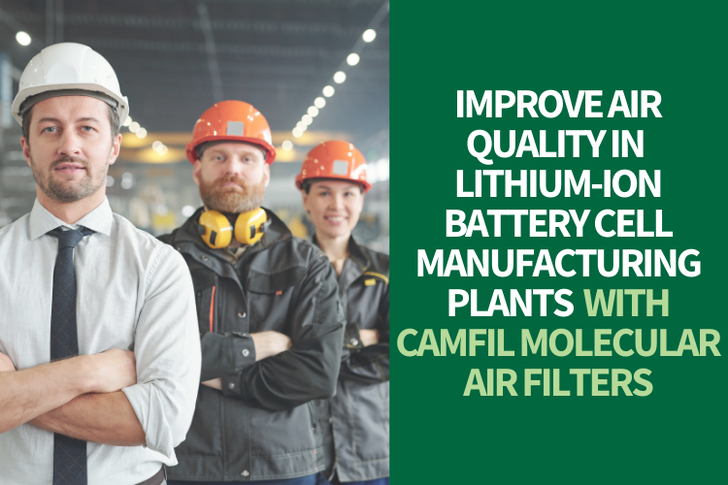The production process for manufacturing lithium-ion battery cells for electric vehicles involves interaction with highly hazardous substances, such as airborne particles that could pose health risks. In a published resource, molecular filtration experts in Santa Clara—Camfil USA discussed air quality issues that plant managers encounter in lithium-ion battery cell manufacturing.
How does lithium battery production affect air quality inside the plant facility? According to Santa Clara air filtration experts, it has to do with what they are made of.
"Lithium-ion batteries power the majority of electric vehicles. These batteries are composed of highly hazardous substances. The cathode is usually made from a combination of lithium, nickel, manganese, and cobalt, while graphite is used for the anode. Lithium salt serves as the organic solvent. The active materials in the battery electrodes, like graphite or lithium cobalt dioxide, are processed in a powdered state, which can produce sub-micron airborne particles."
Santa Clara air filtration experts highlighted the need for a clean environment during lithium battery production to protect products and employees from airborne pollutants.
"The production of lithium-ion battery cells involves several steps, including the coating of anodes and cathodes, slitting, stacking, assembling the battery cell, and filling with electrolytes. These procedures must be performed in clean and humidity-regulated environments to safeguard the product and workers from airborne pollutants. Equipment and components must be in place to capture particles and smoke generated during these production phases," they wrote.
Lithium batteries can emit toxic smoke and particles during quality assurance and testing. Here's how Santa Clara air filtration experts described it:
"Before lithium-ion battery packs can be used in vehicles or other applications, they must undergo and pass safety standard testing and approval. These processes involve electrical, mechanical, and thermal stress tests that could cause the battery to combust, emitting a significant amount of toxic smoke and particles. Again, it is necessary to have effective air filtration and dust/fume control systems in place to protect personnel and the facility."
Santa Clara air filtration experts stated that EV battery manufacturing plants must comply with air quality guidelines from specific environmental agencies.
"Because some of the particulate and gases generated in the production process are potential health hazards, plants must meet OSHA, EPA, and NIOSH requirements for indoor air quality to protect employee health."
As a leading manufacturer of high-quality air filters, the Camfil USA Santa Clara branch partners with local EV battery manufacturers and property managers to design, install, and maintain air filtration and ventilation systems customized for the industry's specific needs. For in-person assistance, contact their air filtration experts through this contact form.
Source: The Crucial Role of Air Quality Control in EV Battery Production Plants
Media Contact
Santa Clara Molecular Air Filters
Denton Murphy
408-987-7777
Website of Source: https://cleanair.camfil.us/camfil-usa-airfilters-santa-clara-ca/
Release ID: 1207591

